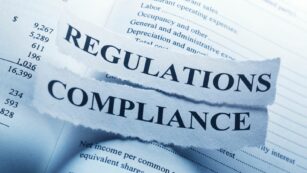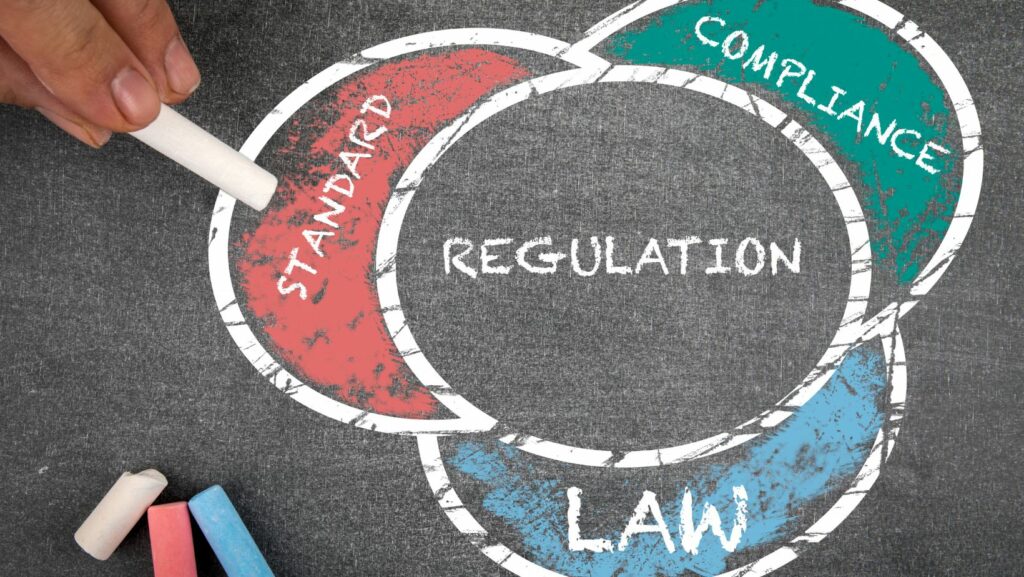Navigating the complex world of compliance is crucial for businesses aiming to operate successfully and ethically. As laws and regulations continuously evolve, staying updated and compliant isn’t just a legal necessity—it’s a strategic tips advantage. From multinational corporations to small local businesses, understanding the nuances of regulatory compliance can safeguard against legal risks and enhance company reputation.
Compliance With Laws and Regulations
Compliance with laws and regulations is crucial for businesses to thrive and maintain their integrity in a competitive market. An adherence to legal standards is essential for reducing risks and upholding the company’s reputation.
Benefits of Legal Compliance
 Reduces Legal Risques: Businesses that abide by the law avoid costly legal battles including fines, sanctions, and litigation expenses. For instance, adhering to labor laws prevents disputes with employees which can lead to legal actions.
Reduces Legal Risques: Businesses that abide by the law avoid costly legal battles including fines, sanctions, and litigation expenses. For instance, adhering to labor laws prevents disputes with employees which can lead to legal actions.
Attracts Investors: Companies following strict compliance protocols are more likely to attract investments. Investors typically prefer entities with a clean legal record, seeing them as lower risk.
Enhances Brand Reputation: Compliance contributes to a positive public perception. Customers are more inclined to trust and maintain loyalty to companies that are committed to lawful conduct.
Ensures Market Expansion: Compliance with regional and international laws is often necessary for geographical expansion. Businesses must comply with local laws to enter new markets, which can open up significant growth opportunities.
Risks of Non-Compliance
Legal Repercussions: Non-compliance can result in severe legal penalties, including fines, restrictions, or even the loss of business licenses. For example, violating data protection laws like GDPR can attract substantial fines.
Damaged Reputation: Once a company’s reputation is harmed due to legal issues, rebuilding trust can be a long, arduous process. This damage often leads to loss of business and customer trust.
Financial Losses: Repercussions of non-compliance often include significant financial losses. These aren’t limited to fines—operational disruptions and compensatory payments can escalate costs.
Key Areas in Compliance Management
Environmental Compliance
 Environmental compliance involves adhering to laws regulating the impact of business operations on the environment. Companies must follow standards set by environmental protection agencies, such as the EPA in the United States, which oversees emissions, waste management, and resource conservation. Compliance reduces legal risks and promotes sustainable practices, which can enhance a company’s reputation and efficiency. For example, adhering to the Clean Air Act ensures that a company minimizes its emissions, preventing potential sanctions and contributing to cleaner air quality.
Environmental compliance involves adhering to laws regulating the impact of business operations on the environment. Companies must follow standards set by environmental protection agencies, such as the EPA in the United States, which oversees emissions, waste management, and resource conservation. Compliance reduces legal risks and promotes sustainable practices, which can enhance a company’s reputation and efficiency. For example, adhering to the Clean Air Act ensures that a company minimizes its emissions, preventing potential sanctions and contributing to cleaner air quality.
Financial Regulation Compliance
Financial regulation compliance is critical for maintaining the financial integrity and stability of a business. Companies are required to comply with laws and regulations that govern financial reporting, auditing standards, and business transactions. This compliance includes adhering to standards set by bodies like the Securities and Exchange Commission (SEC) and following practices outlined in the Sarbanes-Oxley Act. Effective compliance ensures accurate financial reporting and transparency that attracts investors and maintains market confidence.
Labor and Employment Laws
Compliance with labor and employment laws is essential for safeguarding the rights of employees and maintaining a productive workforce. The Department of Labor regulates issues such as minimum wage, overtime pay, workplace safety, and anti-discrimination laws. Companies must ensure they comply with these laws to avoid legal issues and build a loyal, motivated workforce. For instance, adhering to the Fair Labor Standards Act guarantees that employees receive fair compensation for overtime work, enhancing their satisfaction and productivity in their roles.
Strategies to Ensure Compliance
Implementing Effective Compliance Programs
 Organizations must establish robust compliance programs to handle the complexity of legal requirements they face. An effective compliance program involves the development and enforcement of policies and procedures that help prevent, detect, and resolve violations of laws or regulations. Organizations often appoint a dedicated compliance officer who oversees these protocols. Key components include risk assessment, policy development, employee training, monitoring, and auditing systems. These measures ensure that compliance measures align with the ever-changing legal environment.
Organizations must establish robust compliance programs to handle the complexity of legal requirements they face. An effective compliance program involves the development and enforcement of policies and procedures that help prevent, detect, and resolve violations of laws or regulations. Organizations often appoint a dedicated compliance officer who oversees these protocols. Key components include risk assessment, policy development, employee training, monitoring, and auditing systems. These measures ensure that compliance measures align with the ever-changing legal environment.
Training and Awareness Programs
Equipping employees with the necessary knowledge and skills through training and awareness programs is crucial for ensuring compliance. Organizations frequently conduct regular training sessions to keep employees abreanded of the latest regulatory requirements and internal policies. These programs should cover the scope of the laws related to the organization’s operations and emphasize the importance of ethical conduct.

